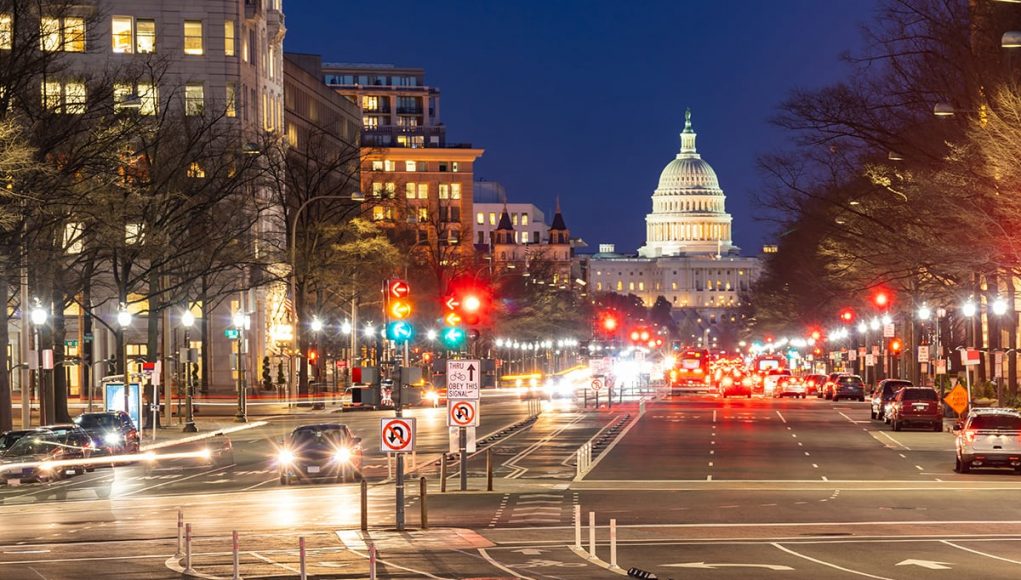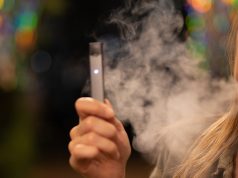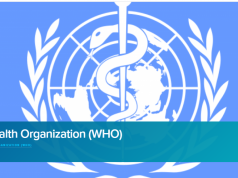WASHINGTON, D.C.—The Global Tobacco and Nicotine Forum, unlike the Global Forum on Nicotine in Warsaw, Poland (where I also attended and corresponded), is the world’s preeminent event for the tobacco giants like Altria Group and British American Tobacco. A showcase of the industry’s so-called social responsibility.
Honestly, the only reason why I traveled to D.C. for this event was due to the attendance of a few select speakers like Marewa Glover of New Zealand and David Sweanor of Canada, both colleagues in some capacity.
After an hour and a half commute with my trusty Lyft driver, I was in familiar territory. The Lincoln Memorial. The Watergate Hotel. The John F. Kennedy Center for the Performing Arts. The National Mall. I was finally in the district, with my driver Muhammed dodging traffic so that I can arrive at the GTNF venue at a reasonable hour.
The Four Seasons Hotel off of Pennsylvania Avenue is honestly not as elegant on the outside as it is on the inside. Mind you, this hotel is still a five-star establishment with elegant chandeliers, a series of deco passages, and a moderately-sized conference area.
Flustered from the drive-in from Chantilly and the heat and humidity, I entered the hotel’s front lobby.
The front desk staffer asked, “How can I help you, sir?”
“Yes, I am looking for the conference center.”
“Down this hall to the stairs. Take the stairs to the lower level.”
“Thank you,” I said, beginning my dive into the bowels of the building.
Enemy, or friend
I went down the hall, took the stairs to the lower level, and I immediately ran into a small cluster of people working at the registration desks.
“Hello, sir. How can we help you?”
“Hi, I’m looking for the media registration,” I replied to the cheerful woman. After I uttered those words, her smile disappeared and pointed to the side of the stairwell and what looks as if a small collapsible table with a sign saying “media” taped to it.
Feeling the awkwardness, I half smiled and cordially thanked the woman and walked over to the table.
Immediately, the gentleman who was sitting at the table doing something on his cell phone popped up with excitement. A welcomed contrast from my prior interaction.
“Hi, sir!” I swear I was getting tired of the “sir” salutation. “Are you with the press?”
I replied to this man’s enthusiasm: “Yes, I am! I’m Michael McGrady, and I am here for Vaping Post.”
“Oh, yes! You are the last one to receive your credential,” he said smiling. All I wanted to do in reply was give him a long laundry list of reasons why I was late: the D.C. traffic, my hangover, no sleep. But, it didn’t seem like he would care.
“Yeah, I know,” I replied forcing a slight chuckle. “It was a busy morning.”
“Not a problem. You got here just on time. Howard Willard just concluded his keynote.”
Howard Willard is the CEO and chairman of Altria Group, the parent company to Philip Morris USA (don’t be confused with Philip Morris International) and the leader of the board majority that acquired a multi-billion-dollar 35 percent holding in Juul Labs.
I know this man’s work well. I just smiled again, and said: “Wonderful.”
“Go down those stairs over there to get to the main ballroom,” he said. I started to walk toward the second set of stairs when the kind man at the media table stopped me: “Also, no recording in the main ballroom, and no pictures. We will be sure to send you audio and pictures when you request it from the press office.”
“That’s a strange way to operate,” I thought. However, I was here to do a job: report from a den of enemies and, oddly enough, allies.
I started to get acclimated to the environment. Hundreds of people were crammed into such a small space. People of all professional backgrounds, age, gender, and nationality. Truly, a literal global event as the name suggests.
I overheard that members of the Bahrainian parliament were in attendance. For what reasons, I wouldn’t know.
People were being herded back into the main ballroom for the next keynote.
Tom Miller, the attorney general of the state of Iowa, was due to speak about harm reduction’s role in the vertical of legalese. Miller, an honest to God advocate for vaping, is a man of mixed feelings for me.
Other players, too many to count
Internalizing the industry’s pain
At the end of it all, the only thing that was prominent to my mind was home. My small mountain town of only a few thousand people. My fresh air. My wife. A hit of an NJOY (also independent of tobacco) disposable menthol vape. A pint of Miller Lite at the local bar.
In towns like mine, there are only one or two vape shops. They don’t stock Juul or really any product produced by companies like Altria, BAT, or Philip Morris International. These people make their own liquids. I know these people by name. They’re my friends. We have beers once a week.
Why would you want to ruin that? Trump’s administration might be backing off from a flavor “ban.” However, the truth is that existing regulations will still force a massive market exodus of small to medium-sized manufacturers, local shop owners, and DIY mixers. Call it a premarket tobacco application. Call it a prohibition. It doesn’t matter. Because, at the end of the day, you are still forcing good honest companies to close down indefinitely.
The PMTA rules are too strict. These rules threaten my friends and the hundreds of shop owners that I’ve interviewed and worked with. How is that not a ban?
As I am finishing this piece, I am eating an atrociously disgusting Subway sandwich at gate Z7 in the Washington Dulles airport. Crowds are slowly trickling in to board a bumpy flight home. What are the odds these people even care about the issues facing nicotine users? Those odds are slim. I don’t say that to be condescending. I say that to further argue the point that groupthink in an echo-chamber can diminish innovation, public health applications, and improvements to the access of available alternative nicotine products.
Negative change is still coming
As I boarded my flight, my contacts in Congress all sent me notes from a hearing that acting FDA commissioner Ned Sharpless testified at.
After quickly reading through the transcripts they sent me, my mind was boggled. The commissioner categorically declared that flavors are not going to be banned, despite the rhetoric from the Trump administration and the tobacco-control community.
However, I was still uneasy. Sharpless still leads an agency that is tasked by law and various federal courts to regulate tobacco and nicotine products under the strict guidelines of the Tobacco Control Act of 2009. I quickly reformed my confusion and slight joy.
The flight attendants were doing their safety checks and tutorials for how to not die if the plane suddenly crashes lands on water.
I repeated to myself an evident truth. FDA still pushes prohibition, in some form or another. Don’t forget that the premarket approval process is a cost-prohibitive means to force the closure of the thousands of small companies that can’t afford compliance across the country. By design, prohibition is still coming. The Big tobacco companies, Juul, the Walmart of Vaping, and medium-sized firms if they are lucky will be the only players left. That isn’t right.
I was unable to sleep on the plane. Instead, I asked the flight attendant for two vodka cranberries (on Frontier Airlines, crappy Tito’s vodka shooters and watered down cranberry juice). I kicked them both back, closed my eyes, and thought about home.








